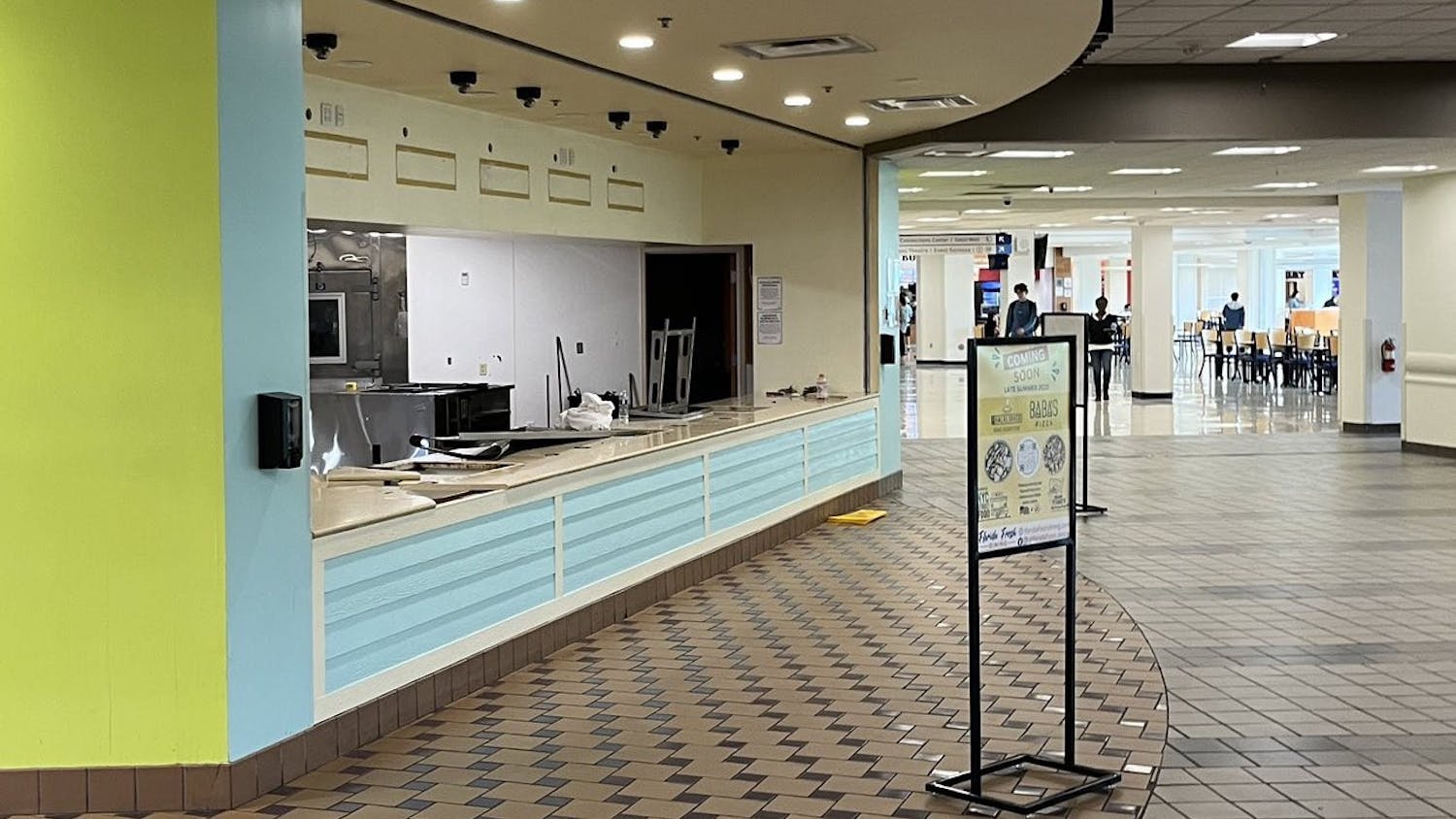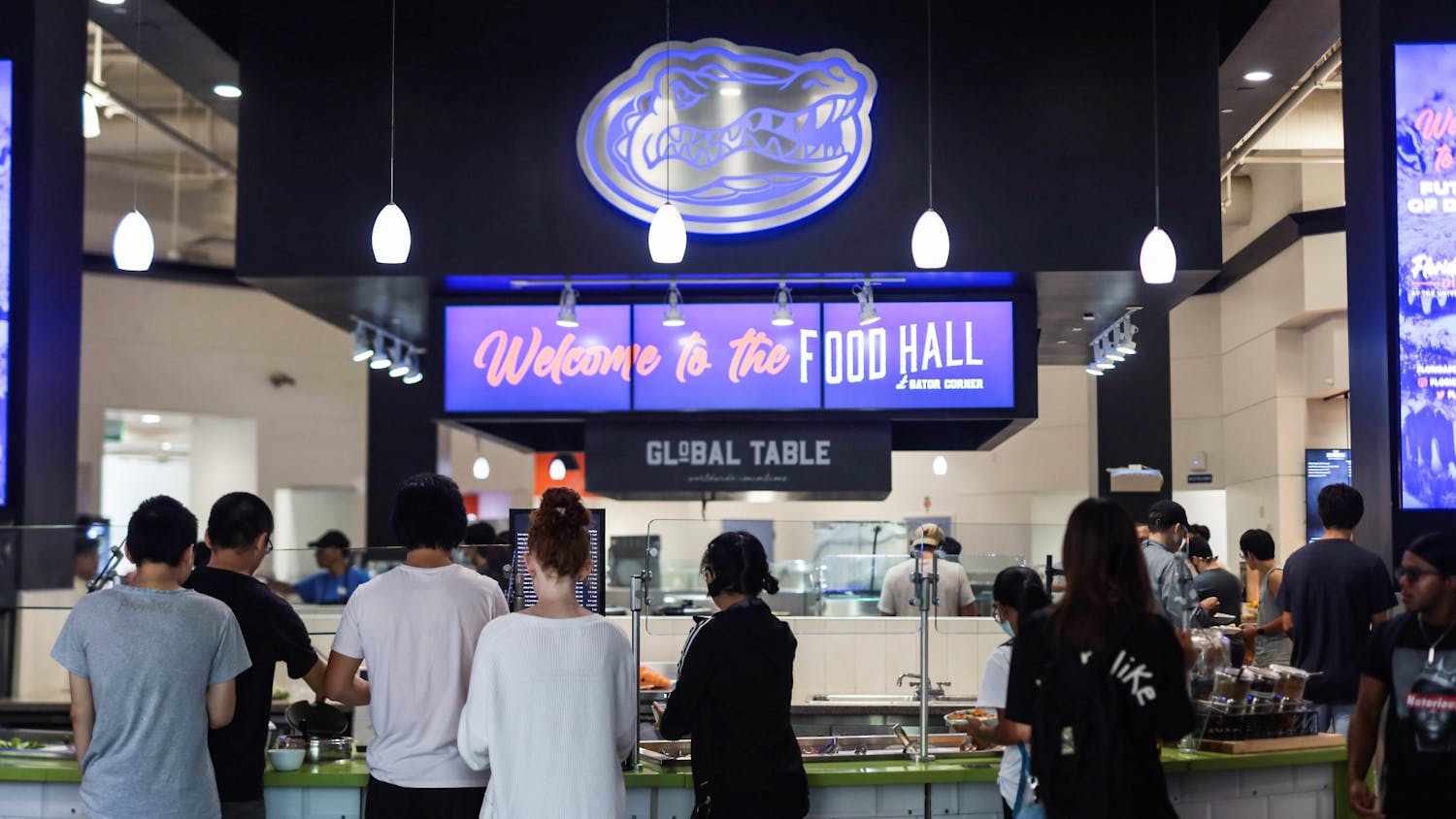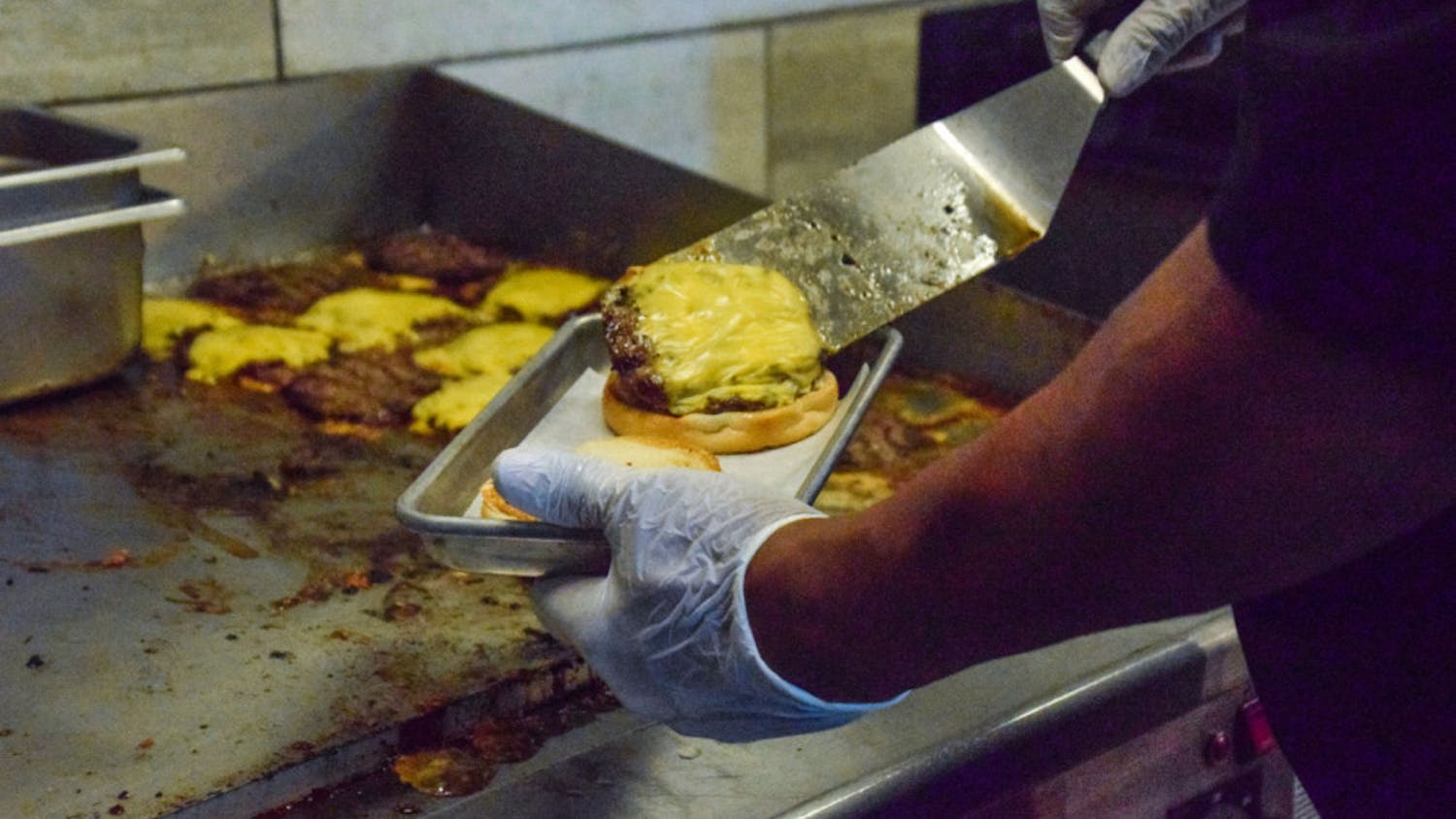Campus dining is a classic example of a public institution being tarnished by the practices of a private company. It would be highly inefficient for UF to manage food services, which is why the university makes contracts with private food companies to handle dining. This is where Aramark comes in. Since 1995, Aramark has been contracted to bring students “Gator Dining.” The problem: Aramark has been under investigation multiple times over the past decade for labor law violations and food safety issues.
If the food at Gator Corner Dining Center ever tasted like prison food, that’s because it is. Along with patrons of professional sports stadiums, two of the biggest consumers of Aramark’s food are students and prisoners. Even then, Aramark has failed in the past to bring service at a level suitable for any human. According to Russia Today, citing local Michigan news sources, Michigan’s correctional facilities broke ties with Aramark last year because its contract “has been marked with failed performance and a range of bad behavior by employees, including meal shortages, maggots in kitchens, the smuggling of drugs and other contraband to prisoners, a contracted prison hit and sex acts with inmates.”
While prisons may be progressing away from companies such as Aramark before collegiate institutions, where progressive thinking is supposed to originate, it is not entirely the fault of the administration. Aramark flaunts its true colors when it makes contracts with schools in 10-year intervals. UF renewed its contract in 2008. This is why the university has not been able to respond to Aramark’s worldwide food safety violations, some of which occurred as early as 2010. A lot can happen in a decade; Aramark knows this.
Although UF is locked into a contract with Aramark until 2019, which should then be the time to sever ties with Aramark, policies can be shifted for better practices.
For one, students shouldn’t have to sign up for both Fall and Spring semesters when buying a meal plan – a practice known as Fall-Spring commitment. Ignoring the question of what students are committing to in the first place, this can only be seen as Aramark taking as much money from students as possible. The majority of students buying meal plans are freshmen, simply because they don’t know the reality of school dining before attending college. Once students who had never had meal plans before come to realize how repulsive on-campus dining is, they are unable to drop their meal plans in their second semester due to this arbitrary commitment.
Another policy that should be changed, but is less likely to, is the monopoly Aramark has on food services on UF’s campus. Aramark’s contract prohibits outside venues from selling food on campus grounds. This is why student organizations can’t organize on-campus fundraisers, from something as big as a food truck day to something as small as selling coffee on a frigid morning.
Though it seems as if this policy won’t be changed until the contract ends in 2019, it could be used to benefit the one area of UF that would see improvement: the Field and Fork Pantry. If Aramark wants to control all food services, for-profit and nonprofit, then let them. There are always leftovers from the buffet-style dining halls from the night before that are simply reused – grilled chicken becomes grilled chicken teriyaki the next day. Students paying for meal plans should get new meals daily, and leftover food can go to the Field and Fork Pantry. No UF student should have to rely on canned food donations when Gator Dining has leftovers reused every day because this private corporation wants to cut costs.
Campus dining needs to be reformed. Meal plans should no longer be a freshman mistake, and students should be able to get a healthy and affordable meal so they don’t have to attend their next class hungry. Although Aramark’s contract with UF doesn’t end until 2019, policies can be changed now to improve an unappetizing situation.
Joshua Udvardy is a UF chemical engineering freshman. His column appears on Wednesdays.





